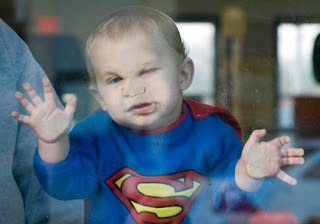I was perusing the NY Times this wonderful fall morning and stumbled upon this article. Basically, the piece is describing the nascent stages of the second wave of global outsourcing.
This phenomenon began several years ago with what has been called the 'disassembly line'. In contrast to Ford's revolution, this new age means of building a product has, "shattered it into a thousand pieces and scattered the line around the world." In an effort to lower costs and time, the supply chain has been divvied up into specialized sub-assemblies. For example, a shirt that is made in a factory in Hunan province, could have the fabric weaved in Sichuan, the buttons molded in just outside of Beijing, and the labels sewn on in Shenzhen. Think of these processes as a pinball machine - going back and forth, back and forth until the final product is created. While China is the world's factory, India is increasingly becoming the world's back office.
Computer programming, call centres, info tech development are all jobs that have moved overseas to India viz the Internet. Much like China, it is cheaper and thus more attractive to companies in the West to get on board the outsourcing train. What the NY Times article is touching on however, is this expansion of outsourcing to consumer-related services...like butlering (well...personal assistance)! While some services like landscaping and hairdressing will always remain in country, those which can be done overseas will migrate elsewhere.
Take tutoring. Traditionally a job done face-to-face, can now not only be done online but a student in Vancouver can be helped by a teacher in Mumbai. Through the internet, VOIP, and the commonality of English this is all possible for usually 30% cheaper than companies that don't outsource. Don't worry though, if you can't quite handle the South Asian accent have no fear for workers now are being taught to speak English with American or British accents. The level of education of the outsourced workers is also a concern consumers should disregard for every year more engineers graduate from college in the state of Andhra Pradesh than in the USA as a whole.
This concept of exporting services is revolutionary because history has always shown that exports are goods. The ability to export services easily and cheaply has made offshoring and outsourcing the next logical step in the advancement of the global economy.
 An unrelated peekture from Globe and Mail
An unrelated peekture from Globe and MailNY Times (Online)
The Elephant and the Dragon ~ Robyn Meredith


